Top Nutrition Tips for Young Athletes
With fall sports starting up, food and fuel are top of mind for many families with young athletes. The truth is, whether you are an avid tennis player or have a child who plays one or two recreational sports after school, individuals who exercise or train on a regular basis should pay extra attention to their diet when it comes to performing at their best. We decided to share some of our Top Nutrition Tips for Young Athletes with you.
Have you ever run out of energy during a competition and thought you didn’t train enough prior to the event? Well, it may not be your training that is lagging behind—it may, in fact, be your nutrition game plan. To give yourself a competitive edge against your opponents make sure you are eating a balanced diet and staying well hydrated. Also, keep these key fueling components in mind:
Top Nutrition Tips for Young Athletes
Tip #1: The Importance of Carbohydrates
As blood glycogen is depleted, the body relies on blood glucose for energy. Carbohydrates provide added fuel and prevent the fatigue and crashes that are associated with low blood sugar. Optimal carbohydrate consumption can also decrease the risk of injury during exercise and preserve muscles along with support muscle gain.
Both fluids and foods provide the same energy to the body if they are carbohydrate-rich sources. Athletes should try a combination of food and drinks to determine what is best tolerated. Many athletes choose:
- Fresh Fruit
- 100% Fruit Juices
- Low-Sugar Sports drinks
- Hard candy
- Energy bars and gels
These carbohydrate sources are fast-release meaning they will get into your blood quickly and provide immediate energy. They should be consumed immediately before exercise, during exercise if lasts more than 60 minutes, and immediately after exercise during early recovery.
Tip #2: Healthy Team Snacks
While all snacks offered up should be healthy, the best snacks for athletes are ones that provide optimal fuel for the body, are actually eaten, and cover hunger and appetite.
The nutrients that are most important for an athlete are carbohydrates and protein. If you target these nutrients when planning snacks, your athlete will get the fuel they need for exercise and have a longer lasting fuel source.
Snacks that contain just a carbohydrate source, like fresh fruit or crackers, are fine for shorter events or practices or even less intense exercises, but they aren’t ideal for the athlete who is exercising for over an hour. The presence of protein in a snack helps your athlete build and repair muscle and helps ward off excess hunger.
Snack balanced snack ideas include:
- Cheese and crackers
- Trail mix with dried fruit, nuts, and pretzels
- Yogurt and granola
- ½ to full sandwich with deli meat and cheese
- Veggies and hummus
Tip #3: Rehydrating During and After Exercise
Special attention needs to be given to proper hydration, especially for young athletes. Because the body cannot store water, we must constantly provide and supply it with water to maintain our body’s many functioning systems. Water, 100% fruit juice and sports drinks are appropriate at an extended competition like a swim or tennis meets. If it’s a short soccer game (less than an hour), keep it to water. Plain and flavored milk are great drink choices during and after a competition. They provide protein for muscle repair and carbohydrate to refuel muscles.
If an activity will last longer than one hour or is very intense, a sports drink will provide fuel for working muscles and electrolytes that are lost in sweat. Look for sports drinks that have the following main ingredients: water, carbohydrate (sucrose and dextrose), sodium, and potassium.
Tip #4: Source for More Nutrition Information
The serious athlete should meet with a registered dietitian who specializes in sports nutrition. These nutritionists, who are trained to work with the demands of competition and the needs of the elite athlete, are the best source for nutrition information. They can tailor a training meal plan to promote the best performance and meet the needs of the individual athlete.

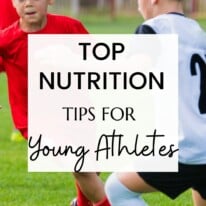
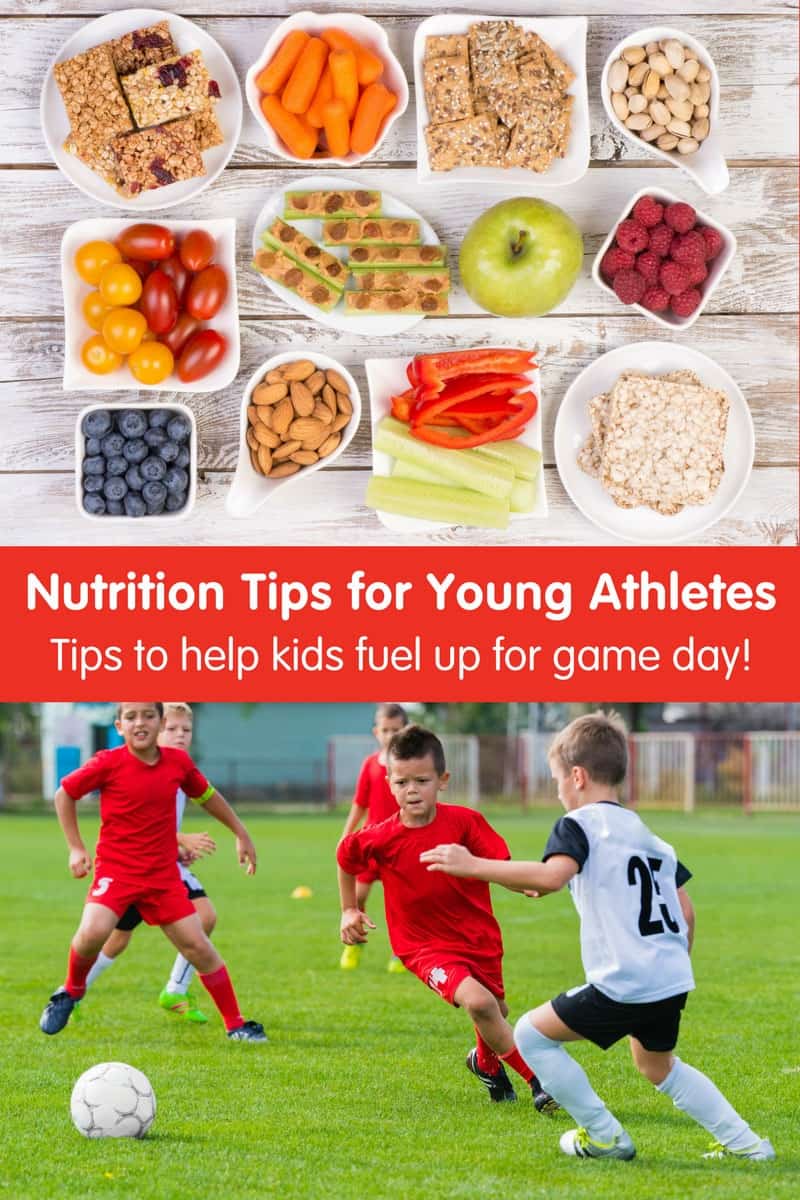
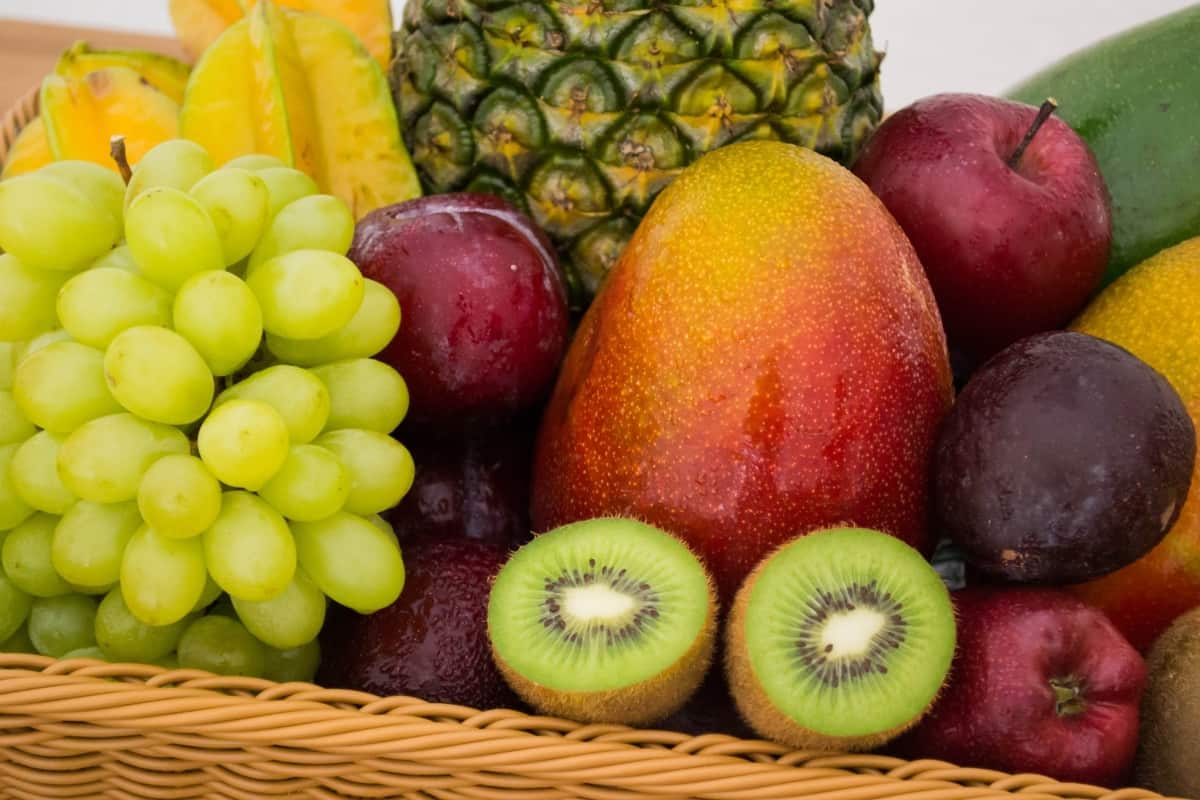
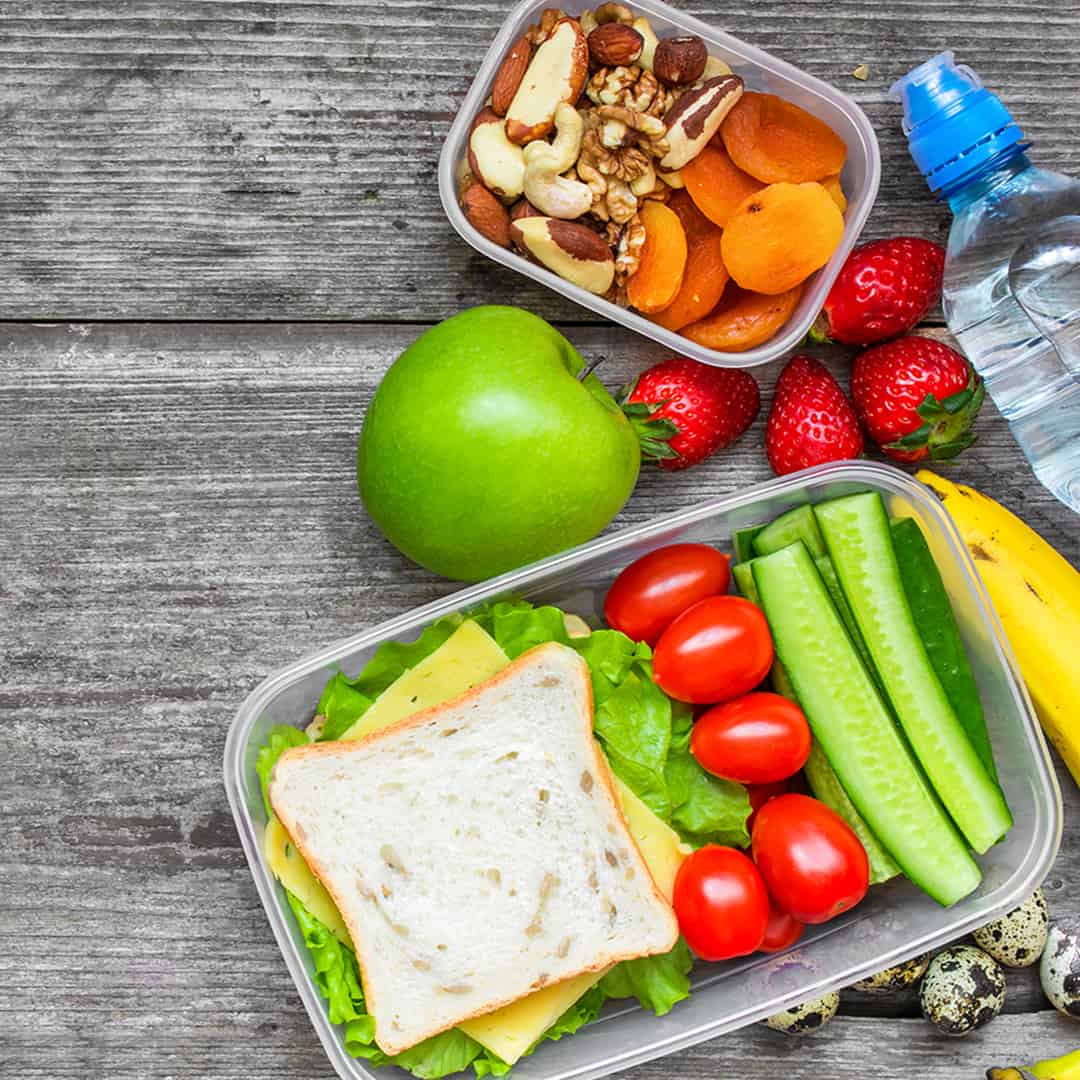
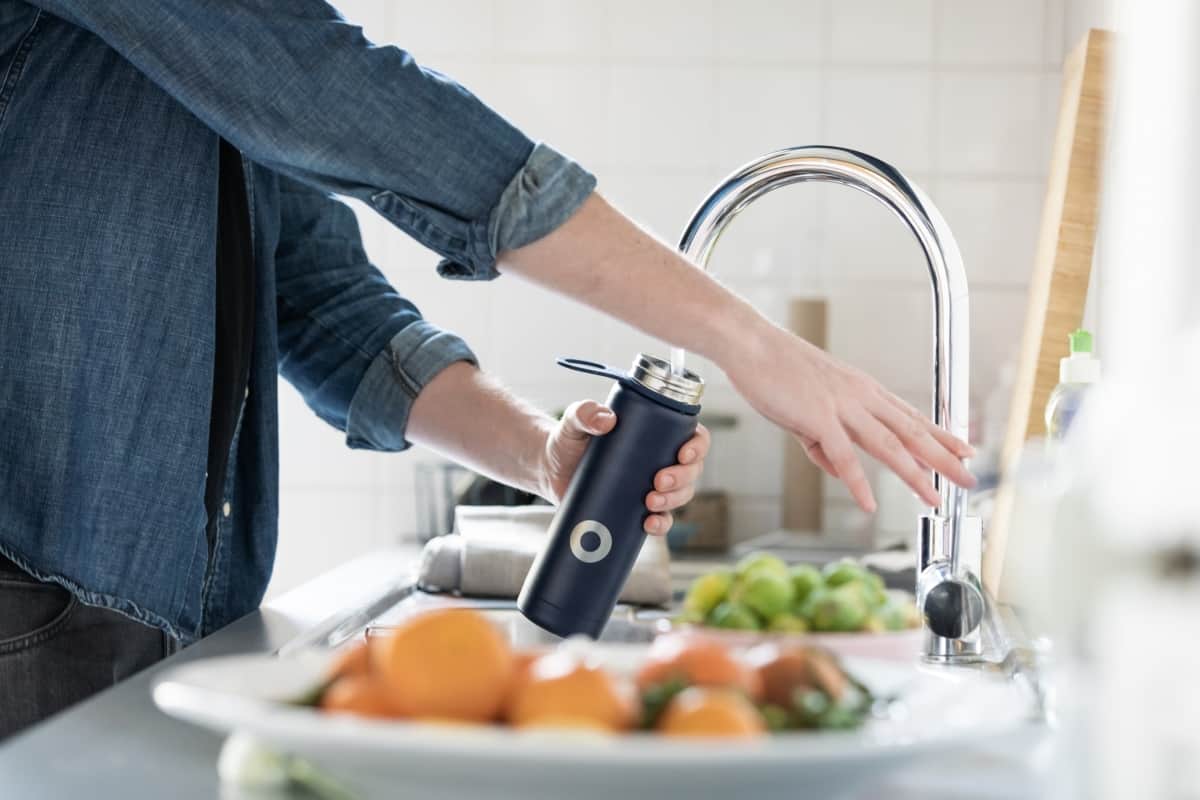
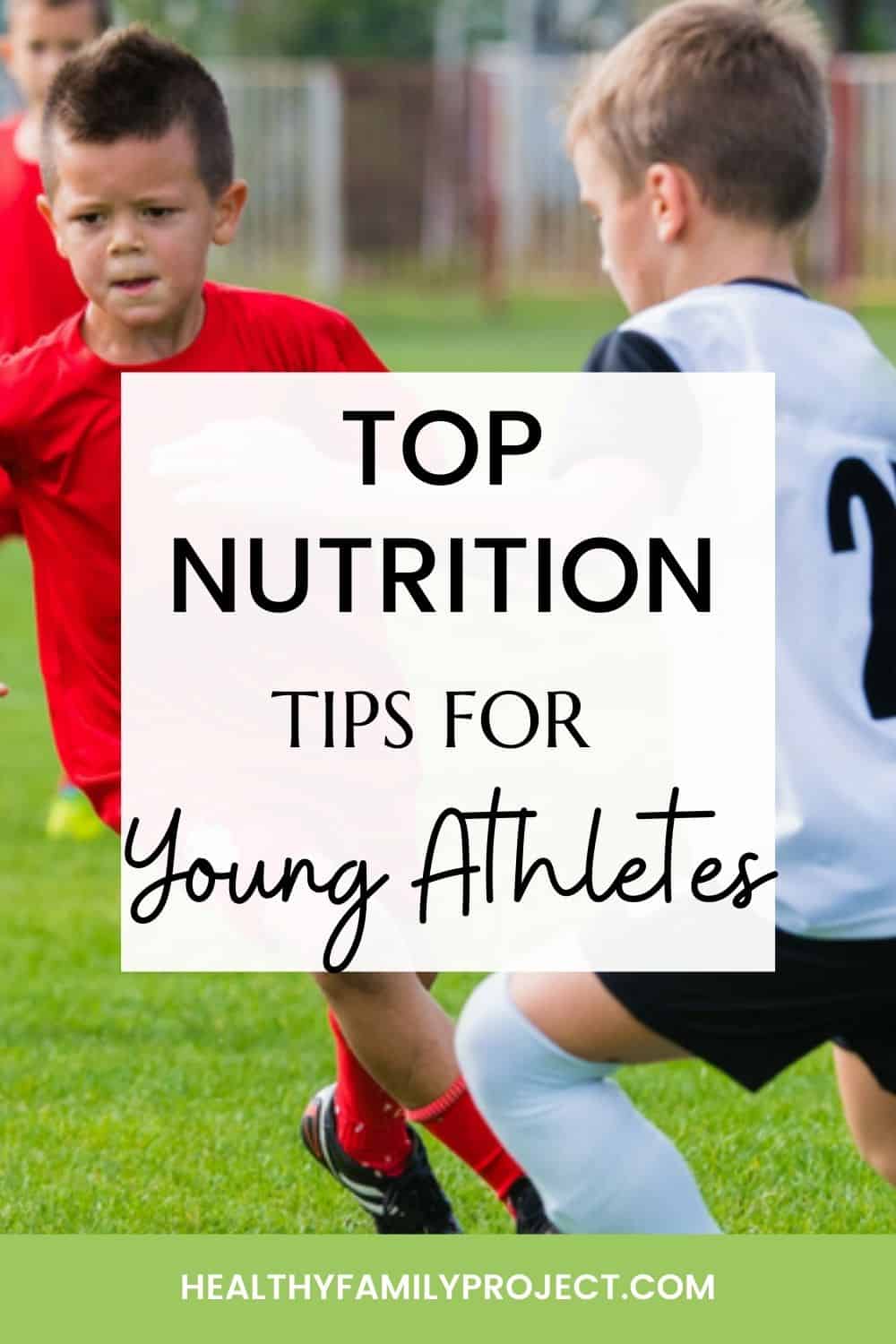




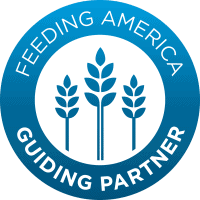

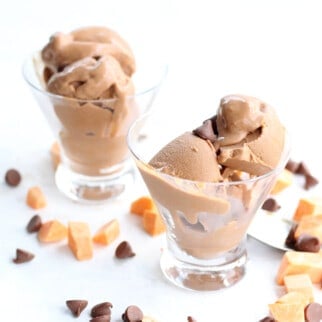

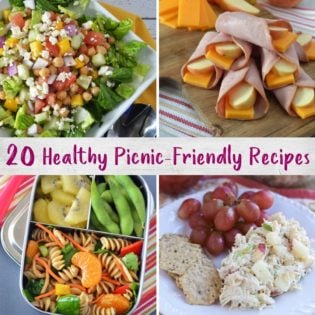
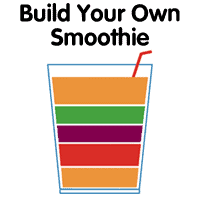

This is a great resource and I’m glad that you shed light on carbohydrates. They seem to get a bad rap in nutrition when, in actuality, they are essential in creating energy and building a stronger body.
Hi Katie, how are you? I’m currently looking into getting more information regarding health for young athletes. What is the current situation regarding health of young athletes. And where do most parents and young athletes see themselves going?
Hi Chris! Katie is currently out on maternity leave, but perhaps I can help you. Can you clarify your question? Are you looking for recommendations on the types of foods/nutrients young athletes should be getting, what they should be limiting, etc.?